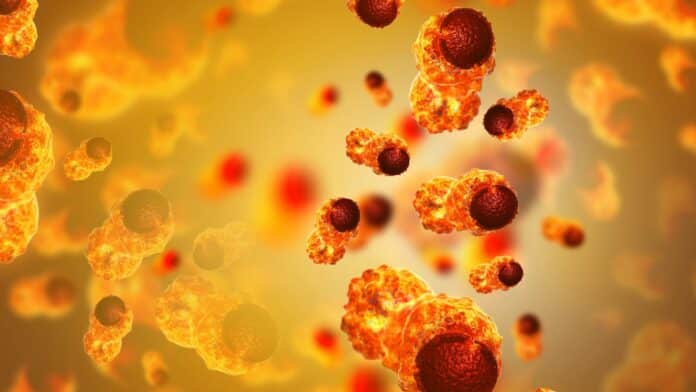Cells respond to physical stimuli, such as stiffness, fluid shear stress, and hydraulic pressure. Extracellular fluid viscosity is a key physical cue that varies under physiological and pathological conditions, such as cancer. However, its influence on cancer biology and the mechanism by which cells sense and respond to changes in viscosity are unknown.
An international team of researchers discovered a novel mechanism that allows cancer cells to spread throughout the body, offering a potential new target to halt metastasis, which is to blame for 90% of cancer deaths.
They identified that cancer cells move faster when surrounded by thicker fluids, a change that occurs when a primary tumor compromises lymph drainage.
John D. Lewis, professor and Bird Dogs Chair in Translational Oncology at the University of Alberta‘s Faculty of Medicine & Dentistry, said, “This is the first time that the viscosity of the extracellular fluid has been looked at in detail.”
“Now that we know that fluid viscosity signals cancer cells to move in a specific way, we can potentially use drugs to short-circuit that signaling pathway and encourage cancer cells to slow down, or even maybe to stop.”
“It’s a transparent, highly vascularized membrane into which we can put human cancer cells. Because it’s flat, we can interface it with a microscope and take time-lapse images of individual cells as they migrate and move and respond to changes.”
“I would say we’re the world leaders in this type of imaging. Our contribution to the work was to very precisely show that cancer cells change their gene expression when they encounter increased viscosity in the surrounding fluid and become more aggressive. And even when you bring the viscosity back down, these cells stay more aggressive.”
“We then went on to show that when this signaling pathway is perturbed in cancer cells, it changes their ability to escape the bloodstream and metastasize.”
“But this is helping us build our understanding around how cancer cells move, and it increases our chance of being successful with this whole approach.”
Journal Reference:
- Bera, K., Kiepas, A., Godet, I. et al. Extracellular fluid viscosity enhances cell migration and cancer dissemination. Nature 611, 365–373 (2022). DOI: 10.1038/s41586-022-05394-6
